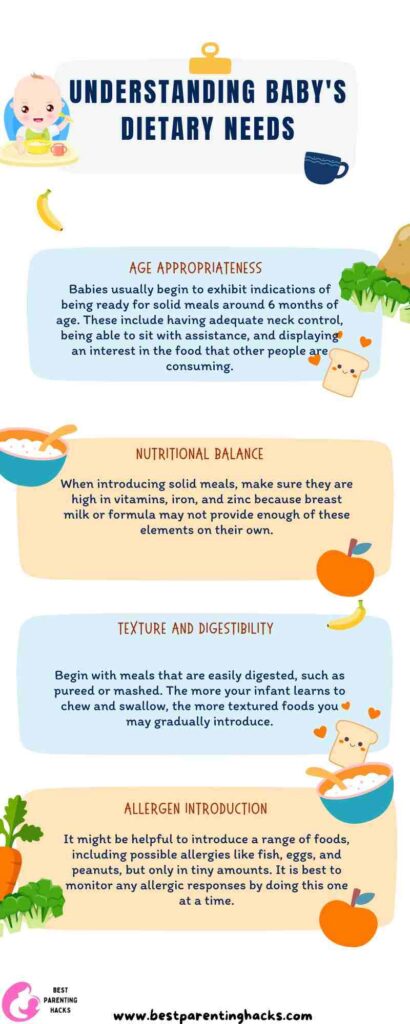Table of Contents
Navigating your baby’s eating milestones may be both thrilling and scary for parents. I still clearly remember the day I stood in my kitchen debating whether or not to expose my child to chicken nuggets. It was a choice fraught with uncertainties and worries, as is typical for many parents. Making this choice involves more than simply introducing a new meal; it also involves determining if your kid is developmentally and nutritionally ready for more complicated foods.
It’s not as easy as a yes or no when introducing chicken nuggets to a baby’s diet, in my opinion, based on a lot of study and discussions with specialists. It requires carefully considering the baby’s age, stage of development, and dietary needs. To explicitly answer the question in the headline, you should normally wait to introduce chicken nuggets to your infant until they are at least 12 months old. This advice is based on the idea that during the first year of life, meals high in vital nutrients should be prioritized, and many chicken nuggets—especially the store-bought kind—don’t satisfy these requirements.

Understanding Baby’s Dietary Needs
The first year of life is very important for your baby’s growth and development when it comes to eating. Breast milk or formula makes up the majority of a baby’s diet in the early months, as it provides all the nutrients required for growth. The introduction of solid foods becomes an important milestone as the 6-month mark approaches. This transition is about gradually educating their digestive tract to handle increasingly complex foods and textures, rather than simply changing their diet.
1. Age Appropriateness: Babies usually begin to exhibit indications of being ready for solid meals around 6 months of age. These include having adequate neck control, being able to sit with assistance, and displaying an interest in the food that other people are consuming.
2. Nutritional Balance: When introducing solid meals, make sure they are high in vitamins, iron, and zinc because breast milk or formula may not provide enough of these elements on their own.
3. Texture and Digestibility: Begin with meals that are easily digested, such as pureed or mashed. The more your infant learns to chew and swallow, the more textured foods you may gradually introduce.
4. Allergen Introduction: It might be helpful to introduce a range of foods, including possible allergies like fish, eggs, and peanuts, but only in tiny amounts. It is best to monitor any allergic responses by doing this one at a time.
You Might Also Like to Read: Why My Baby Sleeps with Head Against Crib Bars?
Chicken Nuggets and Babies: A Comprehensive Guide
Although chicken nuggets are a common meal choice in many homes, introducing them to infants needs to be done with caution. The nutritional content and quality of the ingredients in these nuggets, which are frequently manufactured from processed chicken flesh, might vary substantially.
1. Nutritional Content: A lot of chicken nuggets include a lot of salt and unsuitable chemicals and preservatives for a baby’s diet.
2. Homemade vs. Store-Bought: Since you can manage the ingredients and make sure complete chicken and no extra chemicals are added, homemade chicken nuggets may be a healthier option.
3. Serving Size and Frequency: Use discretion when introducing chicken nuggets. Nutrient-dense meals like fruits, vegetables, and whole grains shouldn’t be substituted with them.
4. Preparation Method: To cut down on fat, bake or grill instead of frying. Make sure they’re cooked all the way through to reduce the chance of foodborne infections.
5. Age of Introduction: As a general rule, don’t introduce chicken nuggets to your infant until they are at least 12 months old, and even then, only as a special treat rather than a regular component of their diet.
You Might Also Like to Read: Why My Baby Covers Face with Hands When Sleeping?

When is the Right Time?
The best time to start your infant on chicken nuggets should be decided after considering several considerations. Making sure your child is developmentally ready for certain meals is just as important as waiting until they reach a specific age.
1. Developmental Readiness: Your baby may be ready for more textured meals if they can chew and show an increasing curiosity about what other people are eating.
2. Nutritional Needs: Pay attention to nutrient-rich meals throughout the first year. You can eventually introduce chicken nuggets if your baby’s diet starts to vary more.
3. Chewing and Swallowing Skills: Make sure your child has acquired the oral motor skills required to manage the texture of chicken nuggets.
4. Allergy Considerations: Take into account any possible sensitivities, particularly if the nuggets include substances like eggs or wheat (gluten).
5. Personal Dietary Choices: Take your family’s eating habits and preferences into account. You may want to wait to introduce chicken nuggets if you have a diet that prohibits manufactured foods, or you may want to make your homemade version instead.

Preparing Chicken Nuggets for Your Baby
You can safely introduce chicken nuggets to your newborn if you take the necessary precautions. Choosing homemade nuggets is usually the healthier option.
1. Choose Quality Ingredients: Use limited amounts of spice, whole-grain breadcrumbs, and chicken breasts.
2. Cooking Method: To prevent using too much oil, bake or grill the nuggets.
3. Size and Shape: To avoid choking concerns, cut the nuggets into tiny, manageable pieces.
4. Frequency of Serving: Give your kid chicken nuggets sometimes as a treat rather than as a mainstay of their diet.

Safety Considerations
When introducing any new food to your infant, especially chicken nuggets, safety is of the utmost importance.
1. Choking Hazard: Make sure you chop the nuggets into bite-sized chunks.
2. Cooking Temperature: To eliminate any potentially dangerous germs, cook the nuggets all the way through to an internal temperature of 165°F.
3. Ingredient Quality: Store-bought nuggets may include preservatives and additives that you should avoid.
4. Supervision: Keep an eye on your infant at all times when they’re eating.
5. Introducing One Food at a Time: This aids in determining if a person has any dietary intolerances or allergies.
Alternatives to Chicken Nuggets
There are several options if you’re not sure you want to serve chicken nuggets or if you’re seeking healthier substitutes.
1. Homemade Vegetable Patties: These may be a tasty and nutritious substitute as they are created with a mixture of veggies.
2. Grilled Chicken Strips: A more healthful protein choice, these are seasoned with light herbs.
3. Tofu or Legume-Based Nuggets: These can offer protein and other nutrients as a vegetarian choice.
4. Whole Grain Finger Foods: Rice cakes or soft-cooked whole-grain pasta make excellent substitutes.
5. Fruit and Vegetable Sticks: When soft-cooked, they can help newborns learn to feed themselves and experiment with flavors and textures.

Conclusion
There are a lot of factors to take into account when deciding whether to give your infant chicken nuggets. As a parent, I discovered that giving handmade, baked chicken nuggets in moderation to my kids once they became 12 months old was a decision that suited our family’s dietary tastes and my child’s nutritional requirements. Keep in mind that each infant is different, so what suits one might not suit another. It’s advisable to speak with your physician and take your baby’s specific nutritional requirements and developmental stage into account.
FAQs
1. Can I offer chicken nuggets to my 6-month-old baby?
• Because of developmental and nutritional concerns, it is best to wait until the infant is at least 12 months old.
2. What is a safe way to prepare chicken nuggets for my infant?
• Choose handmade nuggets, make sure they’re cooked all the way through, and chop them into little pieces.
3. Are baby chicken nuggets from the grocery healthy?
• Homemade food is healthier since store-bought items can have additives and high salt content.
4. How can I tell whether my child is ready for chicken nuggets?
• Keep an eye out for the capacity to chew and a desire for meals with greater texture.
5. Can a baby develop allergies to chicken nuggets?
• While chicken is not frequently allergenic, use caution when consuming nuggets that include eggs or wheat.
6. What are some healthful substitutes for baby chicken nuggets?
• Take into account tofu-based nuggets, handmade veggie patties, and grilled chicken strips.
7. How frequently may I feed chicken nuggets to my infant?
• Present them as a rare treat, emphasizing a varied, well-balanced diet.




